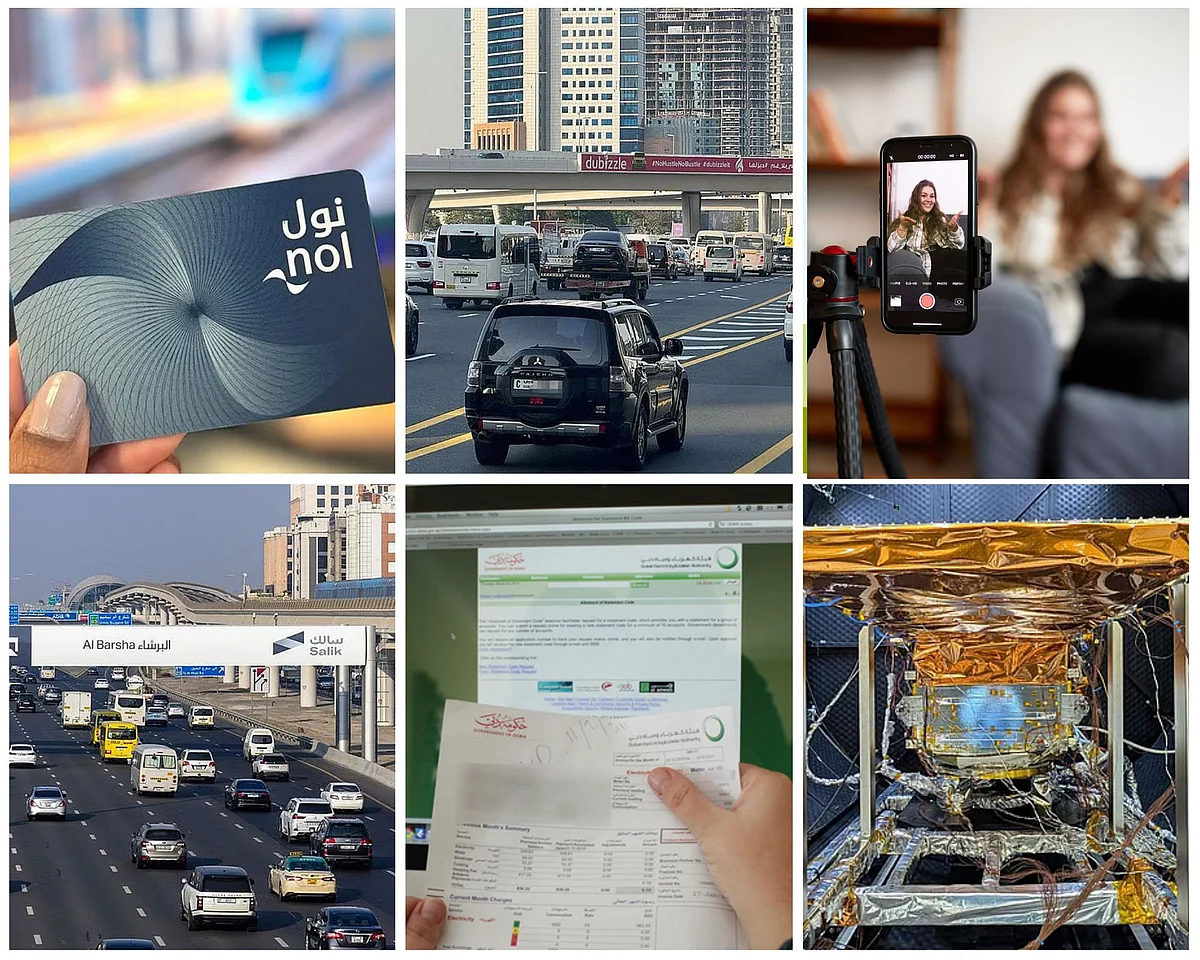New rules, laws, and developments: Six major updates coming in March 2025 in UAE
Next month, key updates will affect residents, businesses, and commuters across the UAE

Dubai: From next month, several new rules, laws, and developments will come into effect, shaping daily life in the UAE. The most significant change is the arrival of Ramadan, expected to begin on March 1, which will bring reduced working hours for employees, remote work options for government sector workers and schools.
Beyond Ramadan, March will introduce several key developments affecting various aspects of daily life. These include changes to the UAE's traffic law, new corporate tax requirements for freelancers and social media influencers, adjustments to electricity and water billing, and the launch of a UAE satellite designed to enhance high-precision weather monitoring.
1. Minimum nol card top-up via Dubai Metro ticket machines to increase
Starting from March 1, 2025, the minimum top-up amount for nol cards at ticket vending machines in Dubai Metro stations will increase to Dh20, the Roads and Transport Authority (RTA) has announced. Previously, commuters could recharge their nol cards at these machines with as little as Dh5.
However, for online top-ups, more flexible options remain available. The RTA’s official platforms—including its website (rta.ae), nol Pay, and the S’hail app, allow users to recharge their nol cards with a minimum of Dh5 and a maximum of Dh150.
There are multiple convenient ways to top up your nol card. For a step-by-step guide, click here.
2. UAE's new traffic law: Lower driving age and stricter penalties
The UAE has introduced a new federal decree-law on traffic regulations, updating existing laws to keep pace with global transportation advancements. Key changes include lowering the legal driving age to 17, incorporating new modes of personal transport such as e-bikes and e-scooters into traffic regulations, and introducing updated rules for both motorists and pedestrians.
Stricter penalties for traffic violations
Drunk driving: Fines up to Dh100,000 and/or imprisonment.
Jaywalking: Increased fines for crossing roads at non-designated areas.
Hit-and-Rrun: Up to two years in jail and an Dh100,000 fine for fleeing an accident scene.
3. Salik gate timings adjusted for Ramadan
During Ramadan, Salik toll gate fees will follow a revised schedule to accommodate changing travel patterns:
Peak hours (9am – 5pm): Dh6 per crossing.
Off-peak hours (7am – 9am and 5pm – 2am): Dh4 per crossing.
Late night (2am – 7am): no toll charges.
4. Corporate tax registration deadline for influencers and freelancers
Freelancers and social media influencers in the UAE must register for corporate tax by March 31, 2025 if their business activity in 2024 generated revenue exceeding Dh1 million by July 31, 2024.
The Federal Tax Authority (FTA) defines a ‘natural person’ as any individual, resident or non-resident, conducting business or business activities in the UAE. This includes sole proprietors and individual partners in unincorporated partnerships.
Key deadlines:
Corporate tax registration: No later than March 31, 2025.
Corporate tax return submission: Before or by September 30, 2025.
5. Etihad-SAT satellite set for March 2025 launch
The UAE's Etihad-SAT, an advanced Synthetic Aperture Radar (SAR) satellite, is scheduled for launch in March 2025. Developed in collaboration between the Mohammed Bin Rashid Space Centre and South Korea’s Satrec Initiative, the satellite features cutting-edge imaging technology, offering high-precision observation capabilities in all weather conditions.
6. DEWA to change billing cycle from March 2025
Dubai Electricity and Water Authority (DEWA) has announced that from March 2025, water consumption will be measured in cubic metres instead of imperial gallons. This aligns with international standards and enhances billing transparency.
DEWA’s smart meters are already compatible with the cubic metre system and customers will see both cubic metres and gallons on their bills during the preparatory phase. The full switch to cubic metres will be effective from the March 2025 billing cycle.
This transition marks a significant step in standardising water measurement practices in Dubai, aligning with global best practices.
Sign up for the Daily Briefing
Get the latest news and updates straight to your inbox
Network Links
GN StoreDownload our app
© Al Nisr Publishing LLC 2026. All rights reserved.